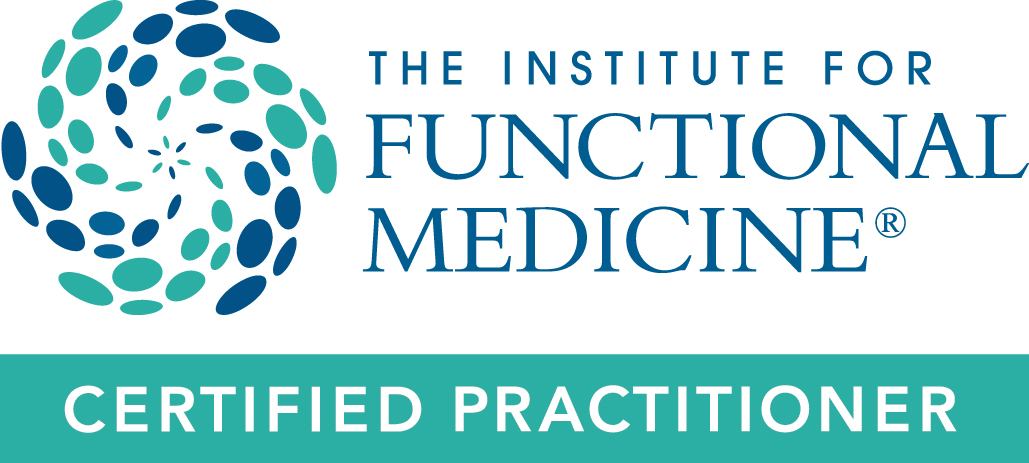It’s hard to talk about the personalization of medicine without discussing genetics.
Genes are your unique set of blueprints that provide the instructions for how you became you — your color eyes, your height, and even your singing ability (or lack thereof in my case). But genes are only one part of your story. Epigenetics — things outside of your genes — help to determine how those genes are expressed — a little or a lot.
Think of your genes as the cookbook and epigenetics as the chef. Depending on how good or bad your chef is, that’s how good or bad your recipes will turn out. In this analogy, the quality of your chef is related to the quality of your lifestyle factors. These lifestyle factors can alter your epigenetics by adding chemical tags to the DNA or proteins around them, which act like little sticky notes that indicate which genes to crank up and which ones to turn down. Things like exercise, a diet rich in plants, sauna or cold exposure, and other healthy lifestyle factors all create a good chef.
On the other hand, high levels of stress, exposure to toxins, drinking or smoking, and other unhealthy factors contribute to a bad chef. So, while you cannot change your cookbook (at least not yet), the good news is that your lifestyle choices can help even if you are working with a less-than-optimal cookbook. Just ask the mice!

In 2003, Randy Jirtle and Randy Waterland conducted a landmark study that opened the door to research on the link between epigenetics, diet, and disease.
In this study, they used the agouti mouse. These mice all have the same Avy gene, which controls pigment production in their fur. The twist is that this Avy gene can be turned on or off by a chemical tagging process called methylation. When this gene is heavily methylated, the mice babies have brown fur; when this gene is less methylated, the mice babies have yellow fur.
One group of pregnant mice was fed a diet rich in methyl donors and B vitamins (folate and B12); in other words, they were given more building blocks for methylation. The other group was fed a diet poor in these nutrients, so there were fewer building blocks for methylation. The outcome? The babies born from the mommies on the methyl-rich diet had brown fur, and those born from the mommies fed a methyl-poor diet had yellow fur. This groundbreaking study demonstrated that diet can impact genetic expression.

Since this study, more studies have demonstrated that healthier lifestyle choices can shift our genetic expression favorably. You will want to focus on the following ideally:
- Eating more plants. Aim for at least 4–6 servings of various vegetables daily.
- Exercise. Aim for at least 150 minutes of moderate-intensity exercise every week.
- Stress reduction. Work on reducing and managing your stress.
- Sleep. Aim for 7–8 hours of sleep every night.
- Build relationships. Having a supportive social network is just as important as many of these things. Isolation and loneliness are huge drivers of stress and inflammation.
Please look at my previous blogs for more tips and advice.
Now, let’s explore your cookbook!
Your lifestyle choices impact how your genes may be expressed. But wouldn’t it also be great to know what cookbook your chef is working with? Whether you have good genes or bad genes, knowing what you’re working with can be helpful along your health journey.
How can knowing your genetics help?
- Early disease diagnosis. Genetic testing can identify mutations for certain hereditary diseases, allowing for earlier detection and intervention.
- BRCA1 and BRCA2. Thanks to Angelina Jolie, many of us are already aware that BRCA1 and BRCA2 mutations can significantly increase the risk of breast and ovarian cancers. Knowing your status can help you and your healthcare provider be more proactive in your screenings and preventative interventions. What’s great is that you can get this and many other genes from commercially available kits (such as 23 and me).
2. Family planning. Genetic testing is helpful to assess your chances of passing hereditary conditions to your babies. Some well-known genetic conditions include Cystic Fibrosis.
3. Pharmacogenomics. Certain genetic variations respond better or worse to certain medications. Knowing some of these genetics can help to improve outcomes and potentially minimize unwanted side effects.
- CYP2D6. This gene is critical for metabolizing various medications, including antidepressants, beta-blockers, and pain medications such as codeine. Variations in these genes can make you a “slow metabolizer,” “normal metabolizer,” or a “rapid metabolizer,” and this can affect how effective a drug may be or how long it stays in your body.
- Codeine. Codeine’s beneficial effect on pain occurs when it is converted to morphine by CYP2D6. “Slow metabolizers” do not convert codeine well into morphine and thus may have reduced pain relief from codeine.
- Tamoxifen. This drug requires conversion by CYP2D6 to be active and effective. “Slow metabolizers” do not convert tamoxifen into its active form, and tamoxifen therapy may be less effective. On the other hand, “rapid metabolizers” may too quickly convert this drug into its active form, which may cause it to be processed too efficiently out of the body as well. Fortunately, alternative drug therapies may be more effective in these patients.
- CYP2C19. This enzyme is crucial for drug metabolism, particularly for antiplatelet medications such as clopidogrel (also known as Plavix). Variations in the genes can affect your metabolism rate, ranging from “slow” to “intermediate” to “normal” to “rapid.”
- Clopidogrel/Plavix. Clopidogrel requires activation by CYP2C19 to have its anti-platelet effect. “Slow” or “intermediate” metabolizers of clopidogrel may be at a higher risk for blood clots causing heart attacks or strokes despite taking the medication. This genetic variation is more common in Asians. Fortunately, alternative drug treatments may be more effective for these patients.
4. Personalized health management. My favorite. Many of our genetic variations do not directly produce disease, but rather, they may impair certain system pathways, such as energy production or methylation. In turn, this can impact our overall function and, over time, lead to decline and disease. Knowing some genetic variations can give us a leg up to be more proactive so that we may live our healthiest, happiest, and most fulfilled life!
- APOE4. APOE helps transport cholesterol and other fats in the bloodstream, as well as helps with the repair and removal of waste products like beta-amyloid plaques in the brain. The APOE4 variant is a well-established risk factor for development of Alzheimer’s disease. While having one or two copies of the APOE4 variant puts you at a higher risk of developing Alzheimer’s, it does not guarantee it, and incorporating a healthy lifestyle that includes exercise, healthy eating, and cognitive stimulation may all help reduce that risk.
- MTHFR C677T and A1298C mutations. Mutations in the MTHFR gene can reduce folate processing and potentially increase the risk for neural tube defects in pregnancy and other health problems. Support with B vitamins can benefit those with more than one of these variants, including myself. For more on this, look at my “B vitamin” blog.
- COMT. This enzyme breaks down neurotransmitters, such as dopamine and norepinephrine. Being either a fast or slower metabolizer may affect your susceptibility to mental health disorders such as depression and anxiety, how you respond to certain medications and stress, and even affect your pain sensitivities. Subtle lifestyle changes, such as avoiding caffeine in slow metabolizers, may help to mitigate some of the impacts.
5. Understanding your quirks. Some genetic variants are fun to learn about or confirm that your parents set you up…
- Lactose intolerance. I am sure most of you do not need a genetic test to tell you this one! My husband would agree that a genetic test was not needed to confirm my status, but it was interesting nonetheless…
- Insomnia issues. You may find that genetically, you may not be good at getting deep sleep, which may not be something you can fix easily. However, like me, you may also find that you have a genetic variant that does not convert tryptophan to serotonin well, which is essential for producing serotonin and making melatonin. Fortunately, some supplements can help
Can knowing your genetics hurt?
- Psychological stress. If you are the type to become anxious, discussing things with your healthcare provider or a genetic counselor can be helpful before checking your genetics.
- Genes do not determine function. While genes can hint at possible areas that may not be functioning well, they do not alone determine function. Here is where functional testing comes in.
Functional testing looks at testing differently than conventional testing. Instead of testing to find diseases, we are testing to assess how the system functions. For example, you may have an MTHFR genetic variant, suggesting you do not methylate well. However, this does not tell me how your cells are actually methylating. Markers such as homocysteine and methylmalonic acid are much more helpful in this respect.
- Complacency. If you happen to inherit the genetic jackpot, you may be lulled into complacency; why worry about getting mammograms or colonoscopies when you don’t have any predisposing genes? Unfortunately, lifestyle and environmental exposures have a lot to say about that, and I would still encourage getting your routine screenings and optimizing your lifestyle factors.
- Privacy and ethical concerns. Data privacy and potential discrimination (i.e., for health insurance) could be potential concerns. If you are worried mainly about the latter, discussing this with a genetic counselor before embarking on a genetic exploration may be helpful.
How should you get tested?
Before getting tested, consider the following:
- Purpose: Consider what information you want (ancestry, health risks, carrier screening).
- Accuracy & Coverage: Research company reputation and test comprehensiveness.
- Privacy & Security: Understand how your genetic information will be used and protected.
- Cost & Insurance: Compare costs and explore potential insurance coverage.
- Genetic Counseling: Consider seeking guidance from a professional to interpret results and understand implications.
Here are some pros and cons between genetic tests you can buy on your own vs. those ordered by your healthcare provider.

I have done a few different genetic tests, two direct-to-consumer tests, and two different clinical screenings for cancer based on my family history. All four tests provided slightly different information.
Direct-to-consumer: I did both 23 and me and 3×4 genetics. A few others on the market look equally good, and some labs will also check individual markers such as MTHFR or APOE4.
My take on the two that I did do. They both provided good information on many of the same genes as well as information on the implications of these variants on your health. The main differences between the two:
- Cost: 23 and me is more affordable.
- Genetics: You get slightly different information from each, of which 3×4 focuses more on clinical health implications.
- Health Reports: I liked both reports. 23 and me gave me some health information, but also it provided the quirky trait report and my ancestry data. I particularly enjoyed the trait report. 3×4 genetics provided more information on actionable health items, which I found more helpful as a clinician.
Overall, if you are curious about your genetics, consider some of the direct-to-consumer products. However, if you are worried about cancer genetics or family planning, talk with your healthcare provider.
Good luck with your self-discovery!
*disclaimer: I have no financial relationship with any of the products mentioned in this blog.
For more useful information on functional holistic health, you can visit our FREE video library here.
About the Author:
Dr. Eri Shimizu is a board certified in Internal Medicine Doctor and certified through the Institutes of Functional Medicine. She earned a Bachelor of Science in Environmental Bioengineering from the University of Hawaii at Manoa and graduated summa cum laude from Creighton University Medical School. She completed her Internal Medicine residency at UCLA and worked at a Los Angeles county hospital. In 2012, she returned to Hawaii and served as a Hospitalist at Maui Memorial Medical Center. Maui is now home with her husband, two children, and a fighting fish named Rainbow.
Schedule a FREE Functional Medicine Health Consult with Dr. Eri.









